Are the Bible and Big Bang Consonant?
Is there scientific evidence for God?
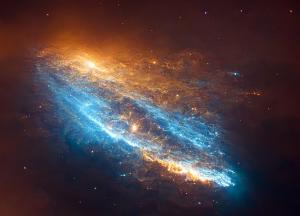
Are the Bible and Big Bang consonant? “Is the Big Bang Theory Biblical?” asks Patheos columnist Jack Wellman. I ask this question too within the context of online debates between atheists and religious adepts over the existence of a Creator God.
No! The Bible and Big Bang are not consonant! Thus speaketh Ken Ham, a Young Earth Creationist behind the website, “Answers in Genesis.” Why? For two reasons. First, Ham appeals to discoveries of the James Webb Space Telescope (JWST), which falls short of scientifically confirming the Big Bang hypothesis. Second, the nearly 14 billion year history implied by Big Bang is contradicted by the Bible, which Ham interprets to say that the cosmos is only 6000 years old. For both scientific and biblical reasons, Ham claims the Big Bang simply did not happen. Ham does not actually need science to prop up his belief in the creator God. Scripture alone will justify belief in God.[1]
More widely, it appears that the criterion for belief or disbelief in God is not the Bible. Rather, it’s scientific evidence. Especially according to many of our atheist friends. In his online post, “Top Ten Reasons No One Should Believe in God,” Dave Anderson, for example, tells us that science does not provide evidence for God’s existence.
“We can all agree that religion as an idea was born way before modern science….there is no scientific evidence that would point to God’s existence.”
I’m doubtful, frankly, that we should ask science to prove or disprove the existence of God. I’ve not yet met a scientist in a white lab coat conducting an experiment measuring evidence for God’s existence. Mostly, scientists try to discover how the material world works. Scientists presuppose methodological naturalism–that is, they look for natural causes. Divine action is not on the scientist’s research agenda. To ask a scientist for evidence of God would be like asking a fisherman to catch a bird.
Even so, much that happens in the wonderful world of science pings the theologian’s transmission tower with signals of transcendence. One of these pings comes from Big Bang cosmology and the idea that time and space began at Time = O (t=O) about 13.7 billion years ago. If time and space began at t=O, then there must be an edge to time. What lies beyond the edge? Eternity?
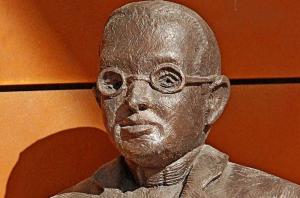
Might the idea of t=O have meaning for atheists? For theologians?
Are Bible and Big Bang Consonant?
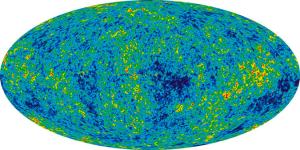
In 1931 Belgian Catholic priest and physicist Georges Lemaître posed the “hypothesis of the primeval atom,” the idea that our universe expanded from a single point. This hypothesis evolved into what we know today as the Big Bang theory of origin. Physicists are excited today because a long lost 20 minute interview of the “faither of the Big Bang” has just been retrieved.
In the 1950s two models competed against one another in interpreting the evidence: the steady state theory and the evolutionary theory (later named Big Bang). Atheist Fred Hoyle sponsored the steady state theory, confessing his fear that the Big Bang model seemed to support the Jewish and Christian doctrine of creation. Here is what is important: the atheist thought that the theory he opposed would support the biblical view.
The matter became settled in 1964 . That’s when Arno Penzias and Robert Wilson discovered background radiation left over from the Big Bang origin of the universe. The existence of this background radiation had been predicted by Big Bang theory, not Steady State theory. For this discovery, the two scientists received the Nobel Prize in 1978.
Might Big Bang provide a character witness testifying on behalf of the Bible’s account of creation? Big Bang cosmology strongly implies that our cosmos has a beginning followed by a history. The material world is temporal, not eternal. Just like the Bible says.
Confirmation of Big Bang marked a bad day for metaphysical materialists. Materialists want to think of the physical universe as eternal. If the physical universe were eternal, then there would be no room for an eternal deity. No need to explain material reality as the gift of a creator. Materialism could justify atheism. What a disappointment, then, that Big Bang suggests t=O.
Did proponents of Big Bang cosmology sell out to religion? Those traitors!
How might we defend materialism against the religious Trojan Horse within science, Big Bang? By positing the multiverse theory. With multiverse theory we have an eternal physical reality within which our particular universe is only one temporal manifestation. Whew! Atheism is saved. Or, is it?
From Big Bang Hydrogen to Humanity
Does Big Bang theory prove the existence of a Creator God?
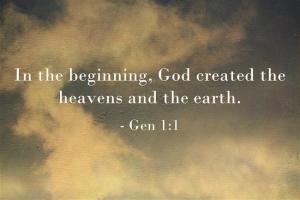 We’re asking about a possible connection between the Bible and Big Bang. No one actually asks a scientific theory to repeat literally what we read in Genesis 1:1-2:4a, the seven day creation passage. Rather, one only asks for consonance between this passage and a scientific account. Key to both Genesis and Big Bang is a point of beginning followed by a history of development over time. So, it’s reasonable to ask: does science provide independent corroboration for the Bible’s account of creation? Arno Penzias certainly thought so.
We’re asking about a possible connection between the Bible and Big Bang. No one actually asks a scientific theory to repeat literally what we read in Genesis 1:1-2:4a, the seven day creation passage. Rather, one only asks for consonance between this passage and a scientific account. Key to both Genesis and Big Bang is a point of beginning followed by a history of development over time. So, it’s reasonable to ask: does science provide independent corroboration for the Bible’s account of creation? Arno Penzias certainly thought so.
“To be in accord with our observations, we must understand that not only there is a creation of matter but also the creation of space and time. My argument is that the best data we have are exactly what I would have predicted, had I had nothing to go on but the five books of Moses, the Psalms, the Bible as a whole” (Penzias, 1978).
To the question–are the Bible and Big Bang consonant?–Penzias would answer affirmatively. It could be suggested that Penzias only reiterates what Pope Pius XII has previously said when addressing the Pontifical Academy of Sciences in 1951.
“Thus, with the concreteness which is characteristic of physical proofs [science] has affirmed the contingency of the universe and also the well-founded deduction as to the epoch when the world came forth from the hands of the Creator. Hence, Creation took place. We say, therefore, there is a Creator. Therefore, God exists” (Kragh, 1060, p. 257).[2]
Note how the Holy Father refers to the contingency of the universe, not specifically to the Big Bang or t=O. We will come back this in a moment.
With irony and humor, Robert Jastrow, founder and director of NASA’s Goddard Institute for Space Studies, declared that our scientists had arrived at the finish line in second place.
“At this moment it seems as though science will never be able to raise the curtain on the mystery of creation. For the scientist who has lived by his faith in the power of reason, the story ends like a bad dream. He has scaled the mountains of ignorance; he is about to conquer the highest peak; as he pulls himself over the final rock, he is greeted by a band of theologians who have been sitting there for centuries” (Jastrow, 1978, p. 116).
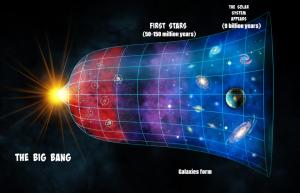
Does Big Bang offer slam dunk proof ? Or, something more modest?
Robert Wilson, Penzias’ partner in discovering the microwave background, is less profligate. Science does not give theology a slam dunk here. Wilson writes,
“Certainly, if you are religious in the Judeo-Christian tradition, I can’t think of a better scientific theory of the origin of the Universe to match with Genesis than the Big Bang. In a sense, though, this only pushes back the ultimate origin once again. How did the spirit or god come to be and what are its properties?” (Wilson, 2022, p. ix).
Science does not prove God, for Wilson. Rather, if one already believes in God as creator, then Big Bang theory will seem consonant with the idea of God as creator. But, be careful, warns Wilson. We’ll still have to ask what our six-year old child asks: “who made God?”
Can the multiverse save materialistic atheism?
Some scientists recoil at the thought of any consonance between science and theology. Why? Because they are materialists in addition to being scientists. This is why Big Bang cosmology provides a challenge.
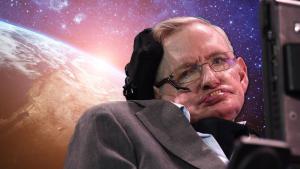
The strategy proposed by theoretical physicist Stephen Hawking was to eliminate the edge of time at t=O. If the cosmos were to have a beginning at t=O, then there’d be an edge between time and what preceded time. “If there is an edge,” Hawking told Renée Weber in an interview, “you would really have to invoke God” (Weber, 1986, p. 209). But, Hawking did not believe in God. Disbelief in God just had to fit into his scientific equations. Somehow the theory needed to adjust to include eternal materiality.
Might a quantum theory of gravity help? Hawking had been chasing the elusive Grand Unified Theory (GTU) that would unite the four forces (gravity, electromagnetism, weak nuclear force, and strong nuclear force). Might we be able to unite the four forces and smother time’s edge within quantum gravity? “The quantum theory of gravity has opened up a new possibility,” contended Hawking, in which “there would be no boundary to space-time.”
Later calling this M-Theory, Hawking predicted “that a great many universes were created out of nothing. Their creation does not require the intervention of some supernatural being or god” (Hawking, 1988, p. 8).
Carl Sagan, when writing a foreword to Hawking’s book, A Brief History of Time, reiterated Hawking’s argument for “the absence of God” on the grounds that there is “nothing for a Creator to do.”
It appears that atheism based upon materialism has been rescued by multiverse or M-theory. Whew! That was a close call.
But, we must ask: does this represent sound science? With Shakespeare, “Me thinks thou dost protest too much!” Is the science of the multiverse driven by data or by an anti-theological theology?
What does Lord Martin Rees think?
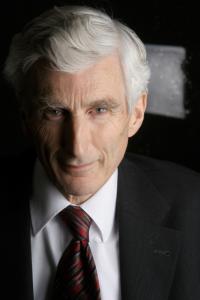
Now, I must confess that my own evaluation may be standing on only one leg.
A few years ago, at a meeting sponsored by the Royal Society at Kavli in England, I ate lunch with Lord Martin Rees (Rees, 2003). Rees, England’s Astronomer Royal, is a distinguished astrophysicist. I offered to Professor Rees my suspicion that multiverse theory is overly driven by anti-theological theology and not by scientific data. He pondered what I said with complimentary courtesy.
“Well,” he said. “I do think there is good evidence to support multiverse theory. It’s real evidence.”
Now, I’m not an erudite scientist. Exactly what Professor Rees said after that escapes my memory. And probably my understanding as well. I simply report that people smarter than I believe multiverse theory has scientific data to support it.
Does Multiverse or M-Theory violate Occam’s Razor?
Even with the evidence Martin Rees knows that I do not know, multiverse theory seems to suffer from too much haggling, from too many auxiliary hypotheses. Does multiverse theory violate Occam’s Razor? [Occam’s Razor says that when two explanations seem to be equal, choose the one that is simpler]. Big Bang theory is simpler than M-Theory. At least according to two French engineers, Michel-Yves Bolloré and Olivier Bonnassies. Positing a creator God is more reasonable, they contend.
“A creator god is a much more simple and well-founded solution than the thesis of multiverses. A rational mind should be inclined to privilege it. It is simpler because if we have to choose between one creative entity and a dizzying universal inflation, the more rational choice is the one that limits useless hypotheses” (Bolloré, 2022, p. 174).
Note that Bolloré and Bonnassies choose between Big Bang and multiverse theory. Yes, to Big Bang. No, to multiverse. Big Bang seems to support the biblical vision of the creation as temporal and historical.[3]
Every scientific theory is more or less adequate to the data, more or less reasonable. No scientific theory claims absolute truth. Bolloré and Bonnassies simply say that a Big Bang cosmology replete with a creating God is more adequate—more reasonable—than a multiverse theory that excludes God.
Consonance, Contingency, and Character
There is a methodological issue at work here. Theologians routinely do not ask scientists to do their work for them. My own approach has been to say that Bible and Big Bang are consonant. That is, these two approaches to our universe complement one another, even though one does not prove the other.
I borrowed the term, consonance, from the late Notre Dame historian of science, Ernan McMullin. Ernan believed theology and cosmology are “consonant in the contributions they make to this world-view…What one cannot say is, first, that the Christian doctrine of creation supports the Big Bang model, or, second, that the Big Bang model supports the Christian doctrine of creation” (McMullin, 1981). If the theologian and scientist share consonance rather than dissonance, it’s a good day.

It’s as uncanny as clear that Big Bang cosmology with its temporal edge on the front end, at t=0, is consonant with the Jewish and Christian understanding of creation as temporal and historical. If the multiverse idea were to prevail, would we lose that consonance? No, according to Robert John Russell, founder of the Center for Theology and the Natural Sciences (CTNS) in Berkeley and co-editor of the journal, Theology and Science.
Why not? Because the multiverse would still be contingent. No explanation of an eternal physical universe could include its own raison d’etre. No scientific description of how the universe works can answer the question of contingency: why is there a universe in the first place?
Any and every scientific cosmology falls short of answering the question of the contingency of the physical world. No scientific theory can answer metascientific questions regarding ultimate reality. Russell makes this point.
“Every scientific cosmology must include an element of contingency since it is precisely the role of these contingent elements in the theory to exclude that which is ultimate, absolutely necessary, a se, and hence to exclude God as a part of the theoretical explanation. Hence any scientific cosmology must in some sense be consistent with the doctrine of creation since it ought not contain within it and proper to it a metascientific counterpart to the concept of God” (Russell, Cosmology, Creation, and Contingency 1989, 205).[4]
Physicist Bob Russell and I regularly team teach graduate students at the Graduate Theological Union in Berkeley. Bob frequently says to our seminar: “Big Bang cosmology does not provide an eye-witness to the biblical account of creation, but it does provide a character-witness.” A character witness.
In addition, Bob is willing to grant the plausibility of a multiverse within which our Big Bang universe is one manifestation. Even with the multiverse hypothesis, Bob maintains that the contingency of all things physical remains a metascientific question. In sum, neither Big Bang nor multiverse can be coerced into providing scientific support for atheism.
The late George Coyne, S.J., former director of the Vatican Observatory, agrees with Russell. Whether scientific cosmology works with t=0 or not, “the theologian knows that the world came into being through the free act of God just as [human beings] are saved by a free gift of grace. This meant that the laws of nature are such as they are because of a free decision by God” (Coyne, 2006, 177).
Is there greater consonance between the Bible and Big Bang cosmology than with multiverse theory? Yes, it seems so at first blush. But, this does not slow Russell or Coyne. Every scientific cosmology can describe only a contingent physical universe. No scientific cosmology can answer the metascientific question of God.
The Bible and Big Bang? Conclusion
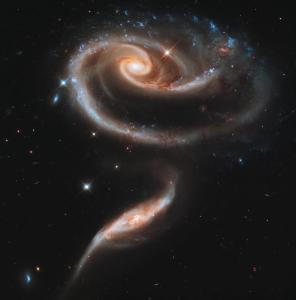
Have we used Big Bang cosmology to prove the existence of a Creator God? No. What we have demonstrated is that Big Bang cosmology is consonant with the biblical understanding of God having brought time and space out of nothing. Even the idea of a multiverse, though a bit less obvious, is consonant with a Creator God who answers the question of contingency.
The lesson to the atheist should be this: the domain of scientific evidence is not the domain where evidence for the existence of God can be evaluated. The question of the existence of a divine creator is a metascientific question, requiring philosophical or maybe theological inquiry. Science cannot do our theology for us.
As a public theologian, I’m not concerned about whether science can or cannot make God a factor in an explanation of natural phenomena. What I am concerned about is the kind of deity God is? What I want to know is this: is God gracious? If a non-gracious God exists, so what? Only the discovery of a God of grace would count as good news for me.
Finally, Bible and Big Bang are consonant. So is multiverse theory, even if it’s less obvious. Neither Big Bang theory nor multiverse theory can provide sufficient justification for a metaphysical commitment to materialism let alone atheism.
Patheos SR 5024 Are Bible and Big Bang Consonant?
▓
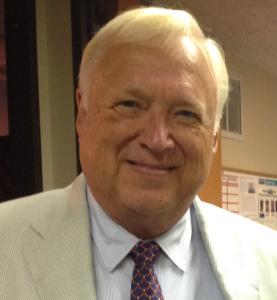
Ted Peters directs traffic at the intersection of science, religion, and ethics. Peters is an emeritus professor at the Graduate Theological Union, where he co-edits the journal, Theology and Science, with Robert John Russell on behalf of the Center for Theology and the Natural Sciences, in Berkeley, California, USA. He authored Playing God? Genetic Determinism and Human Freedom? (Routledge, 2nd ed., 2002) as well as Science, Theology, and Ethics (Ashgate 2003). Along with Martinez Hewlett, Joshua Moritz, and Robert John Russell, he co-edited, Astrotheology: Science and Theology Meet Extraterrestrial Intelligence (2018). Along with Octavio Chon Torres, Joseph Seckbach, and Russell Gordon, he co-edited, Astrobiology: Science, Ethics, and Public Policy (Scrivener 2021). He is also author of UFOs: God’s Chariots? Spirituality, Ancient Aliens, and Religious Yearnings in the Age of Extraterrestrials (Career Press New Page Books, 2014). See his website: TedsTimelyTake.com.
▓
Notes
[1] Ham’s creationist rejection of Big Bang is by no means typical. “Current reactions by Christian communities include a wide range of viewpoints, encompassing praise, admiration, curiostiy, and ignorance, as well as denial”(Cunz, 2023, 40). [2] At most the debate over Big Bang cosmology gets a big yawn from the Jesuit astronomers working at the Vatican Observatory, according to director Guy Consolmagno. At the other end of the theological Spectrum, Answers in Genesis denies the value of Big Bang cosmology for the doctrine of creation. On the other hand, John Morris at the Institute for Creation Research opens the biblical door to Big Bang, even if only a crack. “The most that could be said is that the Biblical account can be molded to conform to Big Bang ideas.” [3] Does the Big Bang mark the very beginning of all things? Not necessarily, if you’re cosmologist Roger Penrose. Penros is now working on a paper about “conformal cyclic cosmology” or CCC. Penrose surmises that “the big bang was not actually the origin of our universe, but the continuation of the remote future of a previous aeon. So the universe expands and contracts and then indulges in this exponential expansion which we now see in our own aeon. where the expansion of the universe accelerates. And it continues”(Penrose, 2023, 40). [4] Bob Russell has honed the concept of contingency so as to speak to these matters. “In my typology I first distinguish between global contingency, which applies to the universe as a whole, and local contingency, which applies to a process or property within the universe. Each of these can have two forms: ontological contingency, namely why something exists per se, and existential contingency, that is, why it exists in the particular way it does….For example, t=0 addresses global ontological contingency, and the fine-tuning arguments about nature’s fundamental constants are related to global existential contingency.” (Russell, Cosmology from Alpha to Omega: The Creative Mutual Interaction of Theology and Science 2008, 15).References
Bolloré, M.-Y. a. O. B., 2022. God, Science, Evidence. https://dieulasciencelespreuves.com/ ed. Paris: The Genesis Project.
Coyne, G. 2006. “Today’s Playing Field: Theology and Science.” God’s Action in Nature’s World. Eds., Ted Peters and Nathan Hallanger. Aldershot UK: Ashgate, 173-188.
Cunz, Manfred, 2023. Skeptical Inquirer 42:1 (January/February) 38-40.
Hawking, S., 1988. A Brief History of Time. New York: Bantam.
Hawking, S. a. L. M., 2010. The Grand Design. New York: Bantam.
Jastrow, R., 1978. God and the Astronomers. New York: Norton.
Kragh, H., 1060. Cosmology and Controversy. Princeton NJ: Princeton University Press.
McMullin, E., 1981. How Should Cosmology Relate to Theology. In: The Sciences and Theology in the Twentieth Century. Notre Dame IN: University of Notre Dame Press, pp. 39-52.
Penzias, A., 1978. Quoted. New York Times, 12 March, p. 183.
Penrose, Rober, 2023. “Cosmic Thoughts: and Interview with Michael Brooks.” New Scientist (Spring) 38-41.
Rees, M., 2003. Our Final Hour. New York: Basic.
Russell, R. J., 1989. Cosmology, Creation, and Contingency. In: Cosmos and Creation. Nashville TN: Abingdon, pp. 177-210.
Russell, R. J., 2008. Cosmology from Alpha to Omega: The Creative Mutual Interaction of Theology and Science. Minneapolis MN: Fortress Press ISBN 978-0-8006-6273-8.
Weber, R., 1986. Dialogues with Scientists and Sages. London: Routledge.
Wilson, R. W., 2022. Preface. In: M. B. a. O. Bonnassies, ed. God, Science, Evidence. Paris: https://dieulasciencelespreuves.com/, pp. vii-ix.














